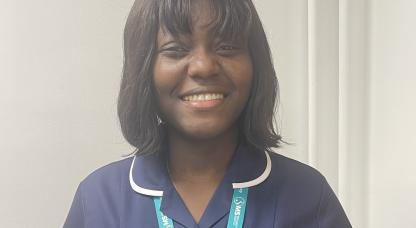Amanda Barrell, of Lemonade Studio, uses examples for the MS Trust's resource for sharing examples of innovative practice to showcase teams using technology to improve care for people with MS.
MS specialists are erasing geographic boundaries and expanding access to services by getting involved in the eHealth revolution.
From conducting video consultations to setting up online peer support groups, teams are challenging the idea that the NHS is notoriously behind the times in tech terms by utilising the latest kit.
Increasing access
Video clinics are starting to take hold, particularly in rural areas, like the Western Isles of Scotland. Here, getting from home to clinic on the mainland in Glasgow can entail a three-day round trip.
Rachel Morrison, the local MS specialist nurse, has set up virtual rehabilitation clinics which allow for people to have a video clinic with their neurologist/rehabilitation consultant in Glasgow and Inverness without leaving home.
Rachel said:
So many people have found difficulties in attending appointments in the past. The service has been running four years, and has inherited patients who were 10 or 15 years down the line from diagnosis and felt they had just been left – if they were unable to leave the island they were not being reviewed by the neurology team.
Rachel's team uses Cisco Jabber, a Skype-style video conferencing programme that has been approved for use in NHS Scotland because it has high levels of encryption and security.
We have had great feedback. People have said it's one of the most positive consultations that they have had. They like it because they are more comfortable in their own homes and they don't feel cut off from services.
There's an app for that…
The team at Wye Valley also conduct video clinics, and have also found iPads and tablets to be incredibly useful in managing their patients.
MS CNS Del Thomas, said:
It's important to use everything we can to support our patients. There are so many apps that can assist in helping manage symptoms.
Brain training-style and jigsaw apps can help with cognitive function, and dexterity games can help people measure and monitor their upper limb function. Del's team has also been utilising sleep apps for some time.
So many people with MS have problems sleeping. By monitoring their sleep, we can identify any patterns. It may be that they have bladder problems or spasticity, sometimes people have a perception they haven't slept very well whereas in fact that have.
Peer support
Most people with long-term conditions say peer support is among the most important tools to managing their health and wellbeing. The rise of the internet has helped make sure everyone has access to support 24/7. Healthcare professionals though, might sometimes worry that people aren't getting the most up-to-date and reliable information.
Barts MS have tackled this head on by holding group clinics and setting up designated groups on the social network, Google+
People are added to the groups after attending the joint clinics, which focus on a particular element of living with MS. The team said:
There is a Google+ page for each clinic type (falls, bladder and lifestyle). This is also a useful method of collecting feedback about the sessions, to improve future clinics,
Get inspired
Employing technology can be a 'quick win' and there are so many simple ways to increase access and get people engaged in services.
The team at St George's in London, for example, asked their trust if they could use the automated text reminder service that was already running in the hospital. The move took a 50-70% attendance rate to an unprecedented 80-100%.
Learn more about how your fellow MS professionals are improving services by using technology.
Amanda Barrell, Lemonade Studio, September 2017



